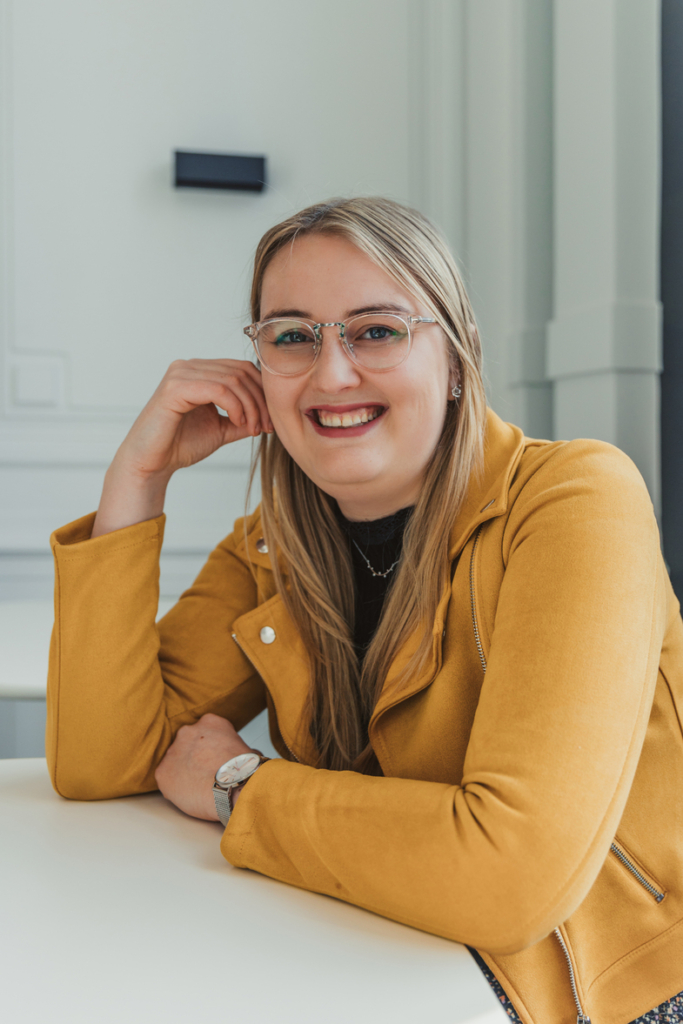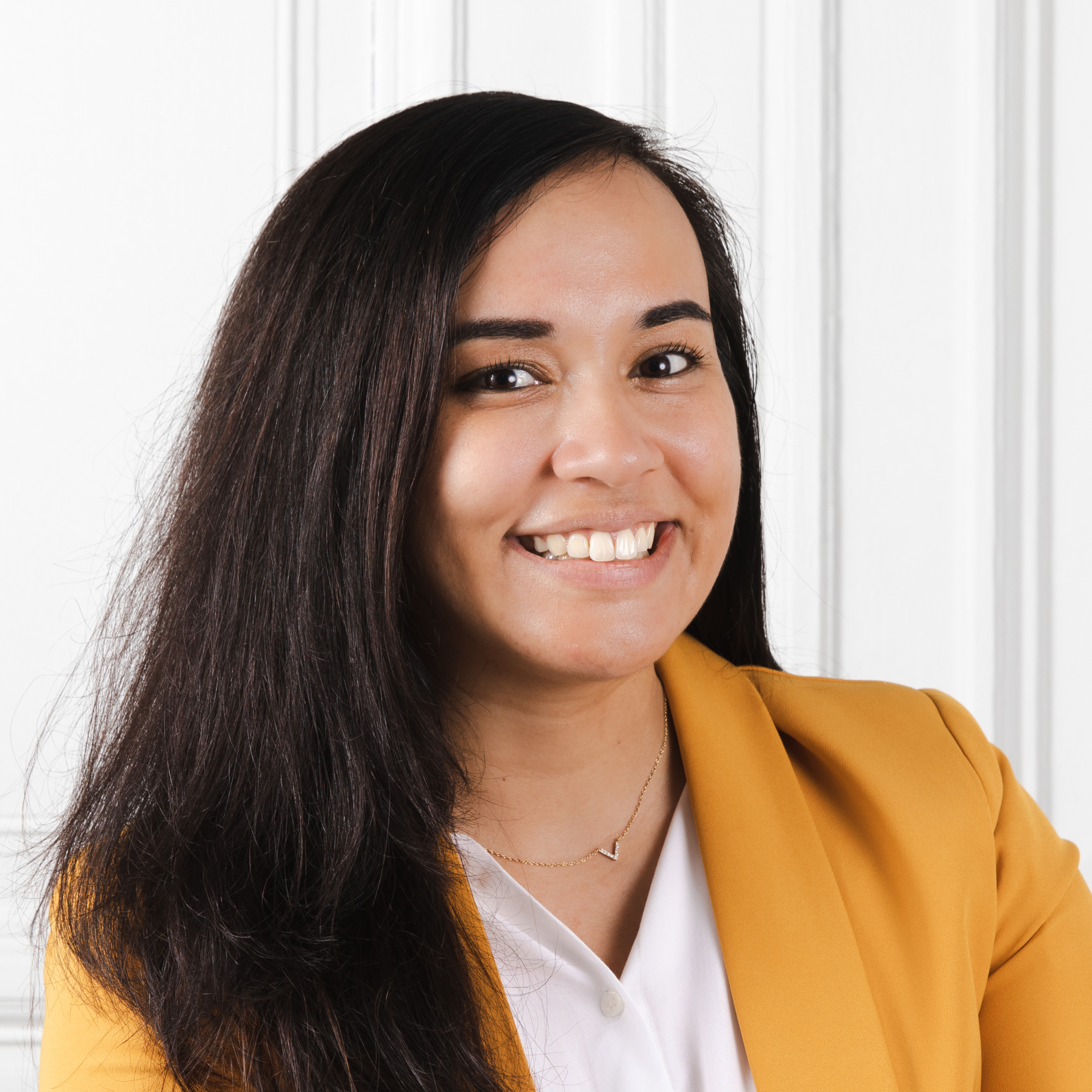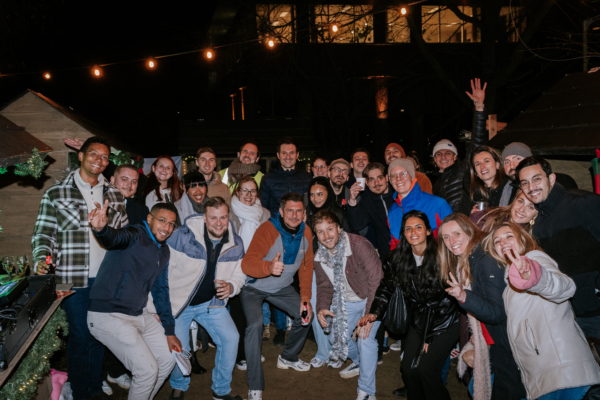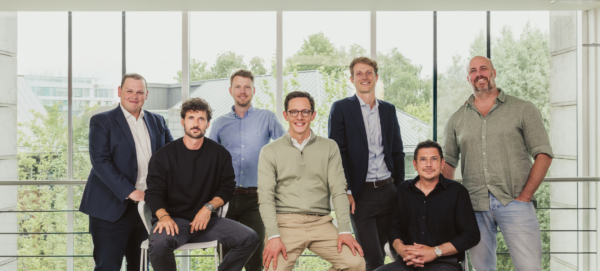
Meet Rani Janssen
Rani’s story
Rani is Project Engineer at Catalay. She lives in Putte and volunteers at Zijkant.
Tell us about your education & career path.
“In high school, I studied industrial sciences and afterwards I studied Industrial Engineering – Process Technology. I started off in high school studying Latin but quickly felt that this wasn’t a great match as it didn’t interest me at all. My favourite course was Technological Education, which was only two hours per week, not nearly enough as I would like it to be! After a talk with my T.E. teacher, it quickly became clear that I would find my thing in a more technical setting.
My high school only provided traditional courses (known in Belgium as “ASO”). But with my strong interest in mathematics and technological education, I knew I needed a change. So I chose to make a switch to a TSO school. The response of my first high school was slightly panicky: they told me I would be unable to pursue higher education and build a career if I went for education in TSO.
It was an early, and unpleasant, meeting with prejudices, with stigma. Which, by the way, turned to be completely ungrounded. Choosing to study Industrial Sciences turned out to be an excellent foundation for my later studies. With eight hours of mathematics and technical courses, I knew once I started that I was exactly where I was supposed to be.”
It’s a pretty assertive move to question your education at the age of 14.
“I was on a mission. I really did not like what I was doing at the time, so I needed to make a change. A clear indication was that my technological education teacher gave me and a classmate more difficult tasks than the rest of the class. He saw that the course became too easy and tried to provide more challenging materials. Eventually, I changed to a more technical school and the one other classmate went on to do something completely different as well and built a career in music!”
After high school, I studied Industrial Engineering with a specialisation in Process Technology at KU Leuven. I started working three years ago as an Assistant Project Manager.”
What inspired you to pursue a career in engineering?
“It was an obvious choice because of my studies, and I’m very passionate about it. There’s a whole spectrum of roles you can take on as a graduated Industrial engineer. Right now, I’m doing more project management which is less technical, more administration, and a lot of collaboration. It’s more generalistic, but because of my background, I’m able to keep up on a technical level with the experts, so I’m still able to use what I studied daily.”

Who has played an essential role in your career in order for you to grow?
“I look up to my mom. She did not finish any higher education and started her career by answering the phone at reception. Now, we’re 35 years later and she has worked her way up the ladder of the same company she started at. She always was motivated to learn more and take extra courses and today she has a global management role.
She always worked full-time, was the primary breadwinner and travelled a lot. My dad took on a lot of our household. They made it work together. My mom is truly an inspiration to me, my role model of a strong woman who made her own career.”
What do you believe are the most important skills that have brought her this far?
“She is so good with people. She can sense individual and team dynamics, and quickly identify how people feel and what they need. She works very hard and is emotionally very intelligent, which is truly a skill in a higher management role.”
“As a child, I never noticed that my mom was around less. But she did encounter prejudices. When she picked me up, she’d get the occasional “oh, look who’s here” smirk of another parent at the school gate. Mostly my grandmother or dad would come and pick me up, so I was always looked after, but the fact that it wasn’t my mom every day didn’t sit well with some of the other parents.”
“I quickly noticed that our household was different than those of my friends. Mostly, their moms worked part-time and were the primary caretaker of the household. I notice that up to this day, a 50/50 division is still not common.”
“My mom took the time on weekends to spend time with me, so I never felt like I lacked any of her attention. Our household was simply organised in a different way than most. My parents have been together for 36 years, so I think it worked out fine.”
Can you have it all?
“I think you can, but then again: what does it mean to have it all? The answer is individual. For some people it’s chasing a career, for others it’s staying at home with the kids and that’s fine. I call myself a feminist and I have no issue whatsoever if anyone’s dream is to be a stay-at-home mom. If that works for you and your partner, that’s just as valid as choosing to remain single and not have kids.”
“I’m involved with Zijkant, a women’s movement that yearly focuses on Equal Pay Day. We know the pay gap starts to take shape around the time women turn 30. It’s the age at which women start a family, stay home, and maybe work less. From a company point of view, it makes sense: if you invest less time in your job; you’ll have less pay and slower career progress.”
An infamous expression states that there’s an expectation that women should work like they don’t have children while being mothers who are there for their kids like they don’t have a career.
“Exactly. As long as society expects women to be perfect mothers, who show up every single day at the school gate at 3.30 PM, it’s a valid question to ask how this can all be combined. It’s not up to the companies. It’s up to us, as a society and how we view the role of a man and a woman in a household.
There’s a different set of expectations according to society: women with kids and a career are held to a different standard just like women with careers who go home on time to be with their kids. They deal with prejudice and stigma, and they can never win.
Zijkant wants to crush prejudices against men and women. They want to bring attention to topics like men not using their parental leave. One way to efficiently use that time is by creating flexible policies around parental leave, like in other countries where that works fine.”

How did you get involved at Zijkant?
“Purely out of my own interests: engineering is a man’s world, so gender equality quickly became a hot topic for me, just like the role of women in STEM education.”
How would you define leadership?
“I spontaneously think about a typical cartoon you see on LinkedIn. It has two images: on the first, a boss is sitting on top of a concrete block and is being pulled forward by the workers. In the second, the leader is pulling the block together with the group. I really like the idea of a leader being where the action is. Leadership means being involved and being there for your team.”
What advice would you give to other women who aspire to pursue a career in engineering?
“My background is all about being a woman in a man’s world. There hasn’t been another girl in my classroom since I was 14. In high school, 20 of the 20 000 students were girls. Twenty. This makes you assertive. You learn how to speak up for yourself. It’s still a struggle for me today though, to be able to respond on the spot to situations that are inappropriate.
I also feel like women need to prove themselves more than men in my industry. People are always looking for ‘Mister’ Janssen; when I tell them I’m the one they’re looking for, they dismiss me and say they’re looking for ‘the engineer’, or rather, their male idea of an engineer. I have had to prove myself many times but it’s also a balance to pick your battles. Sometimes reacting to a certain situation just complicates things, so I choose the path of least resistance.”
How do you contribute to opening the door for other women in your career?
“Every woman who works in engineering inherently does this. If women increasingly work in engineering jobs, the image that women CAN do it becomes more normal. We still have to fight against the prejudice that “it’s not a woman’s job”, and that “women can’t do it”. So if the female engineering population continues to rise, so will the idea it indeed is a woman’s job and that women can do it. Female engineers today are paving the way for those of tomorrow. To do this, we need to keep drawing attention to this issue. This is what drives me to be involved at Zijkant, and doing initiatives like this interview. Every step forward counts!”




